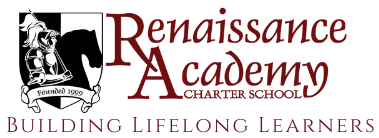Working in a Pennsylvania charter school can have its own unique set of pros and cons. For many educators, the choice is a matter of personal preference.
Exploring the Benefits of Autonomy and Flexibility in Charter Schools for Educators
Many educators find that the autonomy offered in charter schools is a significant advantage. Operating independently of traditional public school districts, charter schools have the flexibility to innovate and implement unique educational programs, curriculum designs, and policies. This independence allows teachers and education professionals the ability to experiment with new teaching methods, adapt to students' needs, and explore creative approaches without the restrictive oversight often found in larger district public school systems. For teachers, this freedom to apply their creativity while encouraging academic success and positively impacting students' lives can be both inspiring and professionally rewarding.
Some charter schools may offer smaller class sizes and cater to a diverse range of student abilities, which many teachers view as a significant advantage. These aspects can vary greatly depending on factors such as enrollment trends, the school's appeal to families, and the local community's culture and demographics. Additionally, the performance and reputation of nearby school districts can influence a charter school's enrollment health. The success and merit of a charter school depend on a combination of these factors, including its ability to provide a tailored and innovative learning environment that meets the needs of its students.
Professional Growth and Student Focus: Opportunities in Charter Schools
Staff in charter schools often experience greater opportunities for professional development and career advancement, which cultivates a stronger sense of community among colleagues. With fewer upper management positions and more teacher-leaders, charter schools provide leadership growth opportunities, allowing staff to take on middle-leadership roles while still maintaining their passion for teaching. This structure offers a unique opportunity for educators to balance leadership responsibilities with their commitment to student success, something many find highly desirable in the field of education.
Additionally, the high level of external accountability in charter schools means teachers and staff are often focused on student achievement, measurable outcomes, and continuous improvement. This data-driven environment creates a sense of urgency and motivation among staff to ensure student success. The flexibility within charter schools allows for more direct, personalized instruction, empowering teachers to adjust their approach and address the individual needs of their students effectively.
Challenges of Working in Charter Schools: Job Security and Funding Considerations
As with any experience, some aspects of working at a charter school may not appeal to all educators in the field. The personal expectations and professional goals that an individual brings to the classroom should be carefully considered when determining if the charter environment is the right fit.
Some seasoned educators may view charter schools as lacking job security. Since most charter schools are non-unionized, contracts are typically based on year-to-year performance, which means educators must continuously demonstrate effectiveness in their roles and remain focused on their own personal goals and growth.. Furthermore, due to the unique funding structure of charter schools, these institutions cannot generate additional income through tax assessments like traditional public schools. This unstable funding can impact the school’s budget and, consequently, staff salaries, as teachers do not receive automatic annual raises or multi-year salary guarantees.
Additionally, some find the workload at charter schools overwhelming. Many charter schools operate with longer school days and extended school years, which can lead to teacher burnout. It’s also common for educators and staff to take on multiple roles within the school, further increasing their workload and contributing to higher levels of stress and responsibility.
Is a Pennsylvania Charter School the Right Fit? Weighing Rewards and Challenges:
Considering all factors, working in a Pennsylvania charter school can be highly rewarding for those passionate about education and willing to adapt to the unique challenges and opportunities presented by this type of charter school environment. However, it is essential for prospective educators to carefully consider the pros and cons of teaching at a charter school before making a decision. Understanding each school’s culture, teaching philosophy, and educational practices is crucial, as every charter school operates with unique educational models and student-centered approaches. Taking the time to assess the school's values, mission, and curriculum will help ensure a successful and fulfilling career in the charter school system.
To learn more about charter schools in Pennsylvania, please visit our Charter School Resources webpage.
